Grep Word In All Files In Current Directory
Grep command is used to search text from files. Recursively Search All Files For A String.
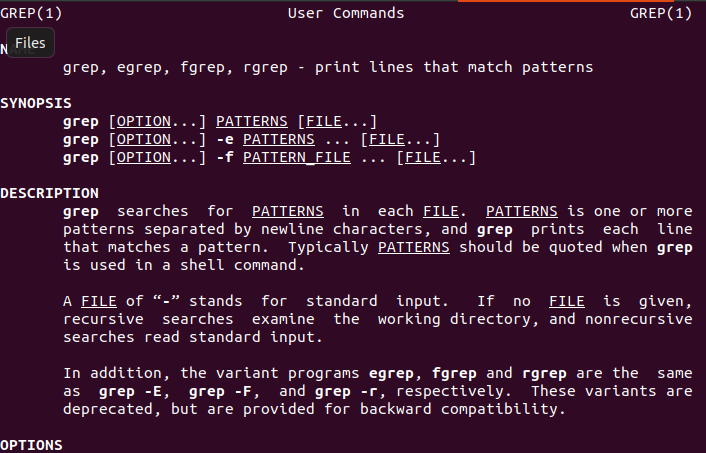
How Do I Use Grep To Search A File On Linux Linux Hint
Grep -n string filename.

Grep word in all files in current directory. The result of this is the occurences of the pattern by the line it is found in the file sEstimated Reading Time. By default grep will read all files and it detects the directories. Grep word-to-search Search sub directories recursively using grep.
With this option one can search the current directory and and all levels of subdirectories by passing the -r or -R to the grep command. For example the following would search all files in the current directory and in all of its subdirectories including their subdirectories for every line containing the word main. Grep -r word pathtodir The -r option is used to search recursively through an entire directory tree.
If no folder name is given grep command will search the string inside the current working directory. You can search string in files matching the file name criteria. Interestingly POSIX grep is not required to support -r or -R but Im practically certain that System V grep did so in practice they almost all do.
-type f -exec grep -l foo find search dir -type f -name c -print0 xargs -I -0 grep foo Search etc directory for. The command is run from the top-level directory. Grep -r -e string directory -r is for recursive.
-type f -exec grep -l alvin. For example searching recursively in current directory for text in yml and yaml. This command can be read as Search all files in all subdirectories of the current directory for the string alvin and print the filenames that contain this pattern Its an extremely powerful approach for recursively searching files in all subdirectories that match the pattern I specify.
Grep --with-filename word file OR grep -H bar file1 file2 file3. Print the file name for each match. Grep Words Form the File in Unix To print all lines containing orange as a word orangeade and oranges will not match run.
To search in all sub-directories but only in specific file types use grep with --include. -type f -exec grep -l word find. Therefore lines containing orangeade or oranges are also printed.
It is a versatile pattern that invokes grep with r. -type f -exec grep -l seting find. Note that single or double quotes are required around the text if it is more than one word.
Grep -rlw --includelog -e tecadmin varlog 4. Grep -R string directory When -R options is used The Linux grep command will search given string in the specified directory and subdirectories inside that directory. Suppress normal output and show filenames from which no output would normally have been printed.
Grep -L string file1 file2. Grep text to search -r. R option search files recursively from subdirectories starting from the current directory.
To grep All Files in a Directory Recursively we need to use -R option. You can search all text files in the current directory with wild cards. Grep -w orange datatxt.
Grep prints all lines containing orange from the file datatxt regardless of word boundaries. 2 days agoIf I understand you want to grep content within all file in directory modified today then you can use a combination of find and xargsFor example to find the files in directory modified today you can give the -mtime 0 option which find files modified 0 24 hour periods ago eg. -type f grep keyword search in current directory.
Force grep to add prefix each line of output with the line number within its input file. -e is optional but its argument specifies the regex to search for. Cd path to dir find.
To handle strange filenames use the -print0 option to have find output nul-terminated filenames. The syntax is. To lookup from root specify instead of.
You can search recursively as you said if you want to search files inside of a directory. Below example command will search string tecadmin in files ending withlog extension in varlog directory and its sub-directories. You can also use the wildcard to select all files in a directory.
Grep is searching inside of files. Find command is recommend because of speed and ability to deal with filenames that contain spaces. Because by default you have not defined what to do with the directories with the.
Pass the -r option to grep command to search recursively through an entire directory tree. Grep -r main projects school.
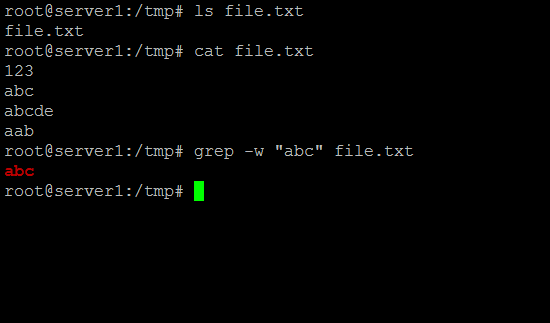
How To Use Grep To Search For Strings In Files On The Shell Admin S Cave

Linux Unix List Just Directories Or Directory Names Nixcraft

Java67 How To Find Files With Matching String In Linux Grep L Command Example
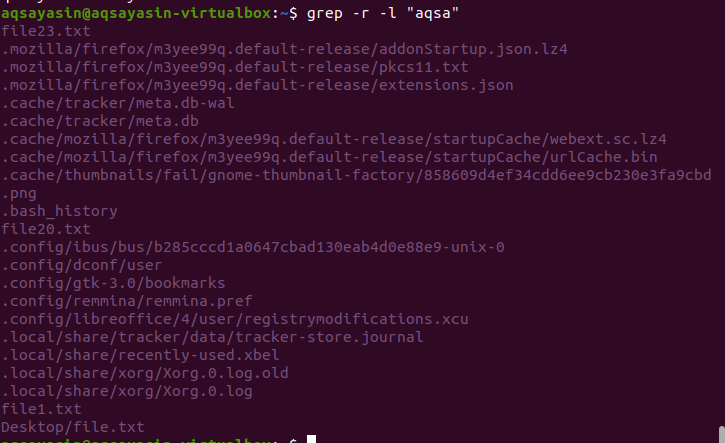
How To Use Grep Recursively Linux Hint

How To Use Grep Command In Linux Unix With Examples Nixcraft
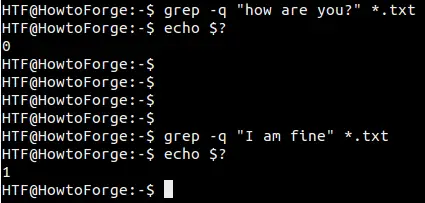
How To Use Grep To Search For Strings In Files On The Shell Admin S Cave

How To Use Grep Command In Linux Unix With Examples Nixcraft
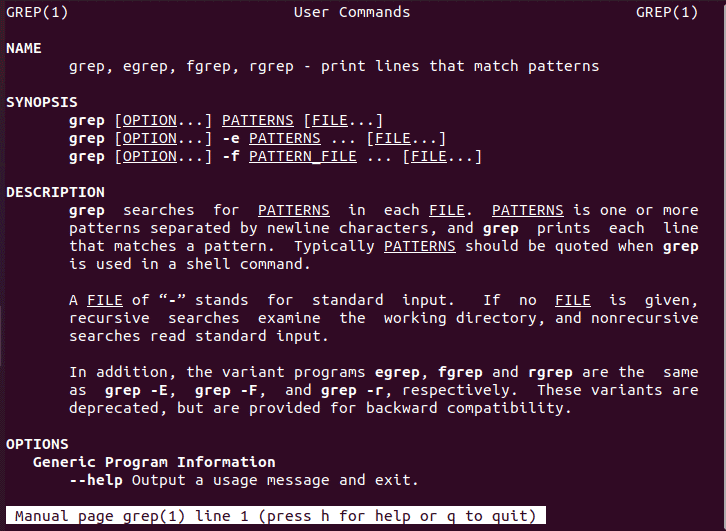
15 Examples Of Using Grep Command In Linux Linuxways

How To Grep From Files And Display The File Name On Linux Nixcraft

How To Use Grep Recursively Linux Hint

How To Search Multiple Words Strings Patterns With Grep Nixcraft

How To Search For Files In Linux Using The Grep Command Infotech News

Unix By Akaash08 Via Slideshare Unix Web Template Design Web Design
Github Inside Vim Grep Operator Bring Motion And Visual Selection To The Grep Command

How To Use Grep Command In Linux Unix With Examples Nixcraft

Grep Command In Linux Unix Journaldev

Java67 How To Find Files With Matching String In Linux Grep L Command Example
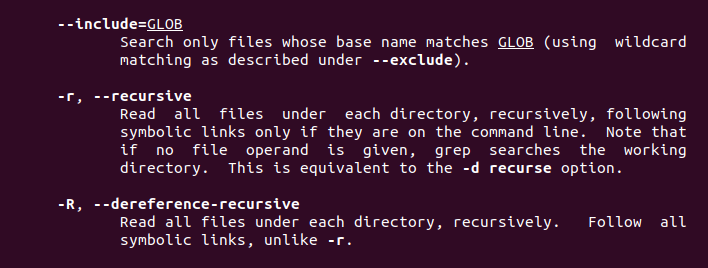
How To Use Grep Recursively Linux Hint
